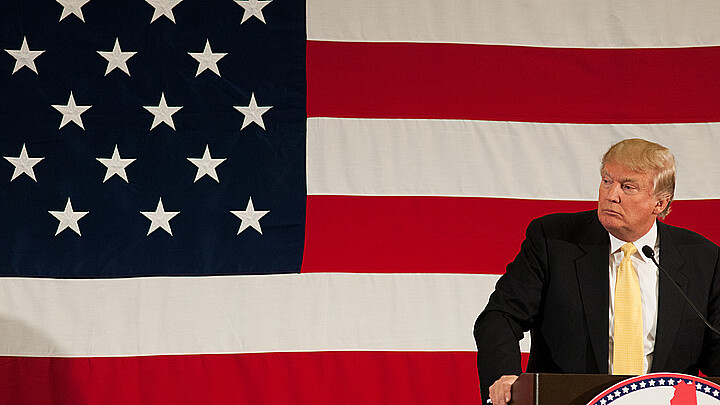Politics
NYT: Economy helping Republicans win Hispanic voters, Whites and minorities in Democratic party drifting apart
The New York Times, which conducted the survey with Siena College, reported that this was the first time its national survey had found such a gap between educated whites and minorities
July 14, 2022 3:15am
Updated: July 14, 2022 11:55am
New poll findings released Wednesday showed that Democrats had a larger share of support among White college graduates than among nonwhite voters, indicating how economic issues are exposing the class divide in the party.
The New York Times, which conducted the survey with Siena College, reported that this was the first time its national survey had found such a gap between educated whites and minorities.
“The confluence of economic problems and resurgent cultural issues has helped turn the emerging class divide in the Democratic coalition into a chasm,” wrote New York Times’ chief political analyst Nate Cohn on the trend.
He called it “a striking indication of the shifting balance of political energy in the Democratic coalition,” as it had been the opposite historically.
“As recently as the 2016 congressional elections, Democrats won more than 70% of non-white voters while losing among white college graduates,” Cohn said.
The survey found that the shift rightward was especially pronounced for working-class Whites and Hispanics, both of whom remain more concerned about the economy and inflation than abortion and gun rights. 54% of white voters without college degrees supported the GOP, while only 23% supported the Democratic party.
Hispanic support of the two parties was statistically tied in the Times/Siena – 41% for Democrats and 38% for Republicans. This parity is a dramatic shift from recent elections, as Hispanics voted for Democrats in the 2018 midterm by almost a 50-point margin, according the Times reported.
It also said that the economy was a major factor in the current shift in Hispanic voters who are reportedly moving to the right.
"The economy may be helping Republicans most among Hispanic voters, who preferred Democrats to control Congress, 41-38. Although the sample size is small, the finding is consistent with the longer-term deterioration in Democratic support among the group. Hispanics voted for Democrats by almost a 50-point margin in the 2018 midterms, according to data from Pew Research, then President Donald J. Trump made surprising gains with them in 2020," the Times reported.
It also said that, "no racial or ethnic group was likelier than Hispanic voters to cite the economy or inflation as the most important issue facing the country, with 42 percent citing an economic problem compared with 35 percent of non-Hispanic voters."
Republicans made “surprising gains” among Hispanics in 2020, with only a 21-point difference in votes between Democratic candidate Joe Biden and Republican Donald Trump.
Miami-Dade, a predominantly Democratic county had a radical shift in 2020.
Former presidential candidate Hillary Clinton won Hispanics by 30 points in 2016, but Joe Biden only won by seven percentage points in 2020, marking a 23 point loss for the party in just a one election cycle. The shift was so dramatic that it even spurred a November 4, 2020 story from Rolling Stone titled, "What the hell happened to Democrats in Miami-Dade?"
Axios put it more bluntly, saying: “We are seeing a political realignment in real time.”
“Democrats are becoming the party of upscale voters concerned more about issues like gun control and abortion rights,” said reporter Josh Kraushaar.
“Republicans are quietly building a multiracial coalition of working-class voters, with inflation as an accelerant.”
Despite the new intra-party dynamics, the poll found Democrats and Republicans statistically tied on the generic congressional ballot, 41% to 40%.
The same Times/Siena survey found that President Joe Biden’s approval rating has fallen to a record low of 33%, and that 64% of Democrats want a different candidate in 2024.










